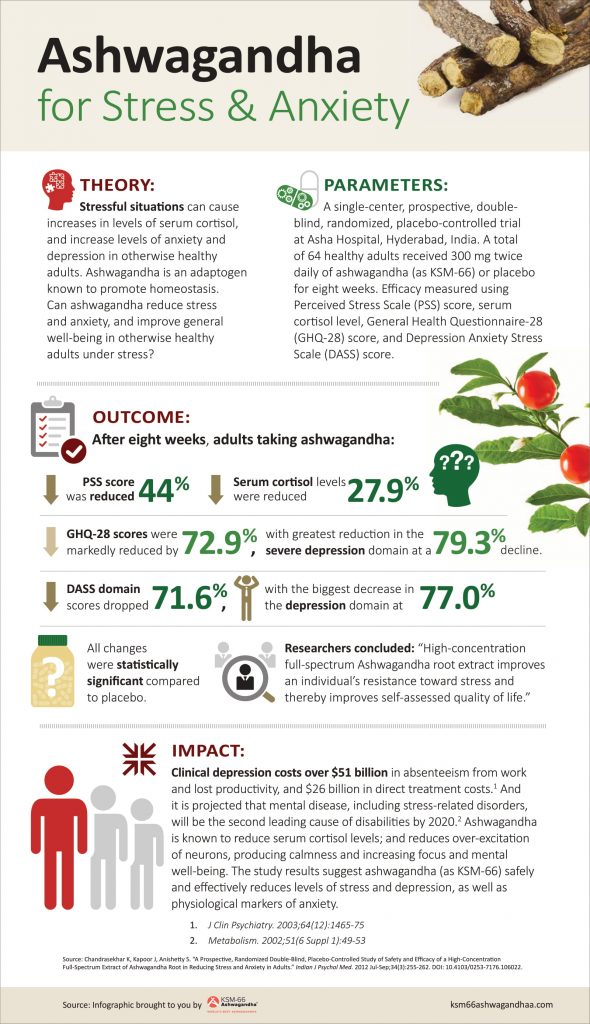Ashwagandha for Anxiety
July 2020
According to an article on stress published in Metabolism, mental disease—including stress-related disorders—will be the second-leading cause of disabilities by 2020. This infographic examines the potential impact of ashwagandha on mitigating stress and anxiety, while promoting overall well-being.
Theory
Stressful situations can cause increases in levels of serum cortisol, and increase levels of anxiety and depression in otherwise healthy adults. Ashwagandha is an adaptogen known to promote homeostasis. Can ashwagandha reduce stress and anxiety, and improve general well-being in otherwise healthy adults under stress?
Parameters
A single-center, prospective, double- blind, randomized, placebo-controlled trial at Asha Hospital, Hyderabad, India. A total of 64 healthy adults received 300 mg twice daily of ashwagandha (as KSM-66) or placebo for eight weeks. Efficacy measured using Perceived Stress Scale (PSS) score, serum cortisol level, General Health Questionnaire-28 (GHQ-28) score, and Depression Anxiety Stress scale(DASS) score.
Outcome
After eight weeks, adults taking ashwagandha:
- PSS score was reduced by 44%
- Serum cortisol levels were reduced 27.9%
- GHQ-28 scores were markedly reduced by 72.9%
- with greatest reduction in the severe depression domain at a 79.3% decline.
- DASS domain scores dropped 71.6%
- with the biggest decrease in the depression domain at 77.0%
All changes were statistically significant compared to placebo
Researchers concluded:
“High-concentration full-spectrum Ashwagandha root extract improves an individual’s resistance toward stress and thereby improves self-assessed quality of life.”
Impact
Clinical depression costs over $51 billion in absenteeism from work and lost productivity, and $26 billion in direct treatment costs.[1] And it is projected that mental disease, including stress-related disorders, will be the second leading cause of disabilities by 2020.[2] Ashwagandha is known to reduce serum cortisol levels; and reduces over-excitation of neurons, producing calmness and increasing focus and mental well-being. The study results suggest ashwagandha (as KSM-66) safely and effectively reduces levels of stress and depression, as well as physiological markers of anxiety.
- J Clin Psychiatry. 2003;64(12):1465-75
- Metabolism. 2002;51(6 Suppl 1):49-53
